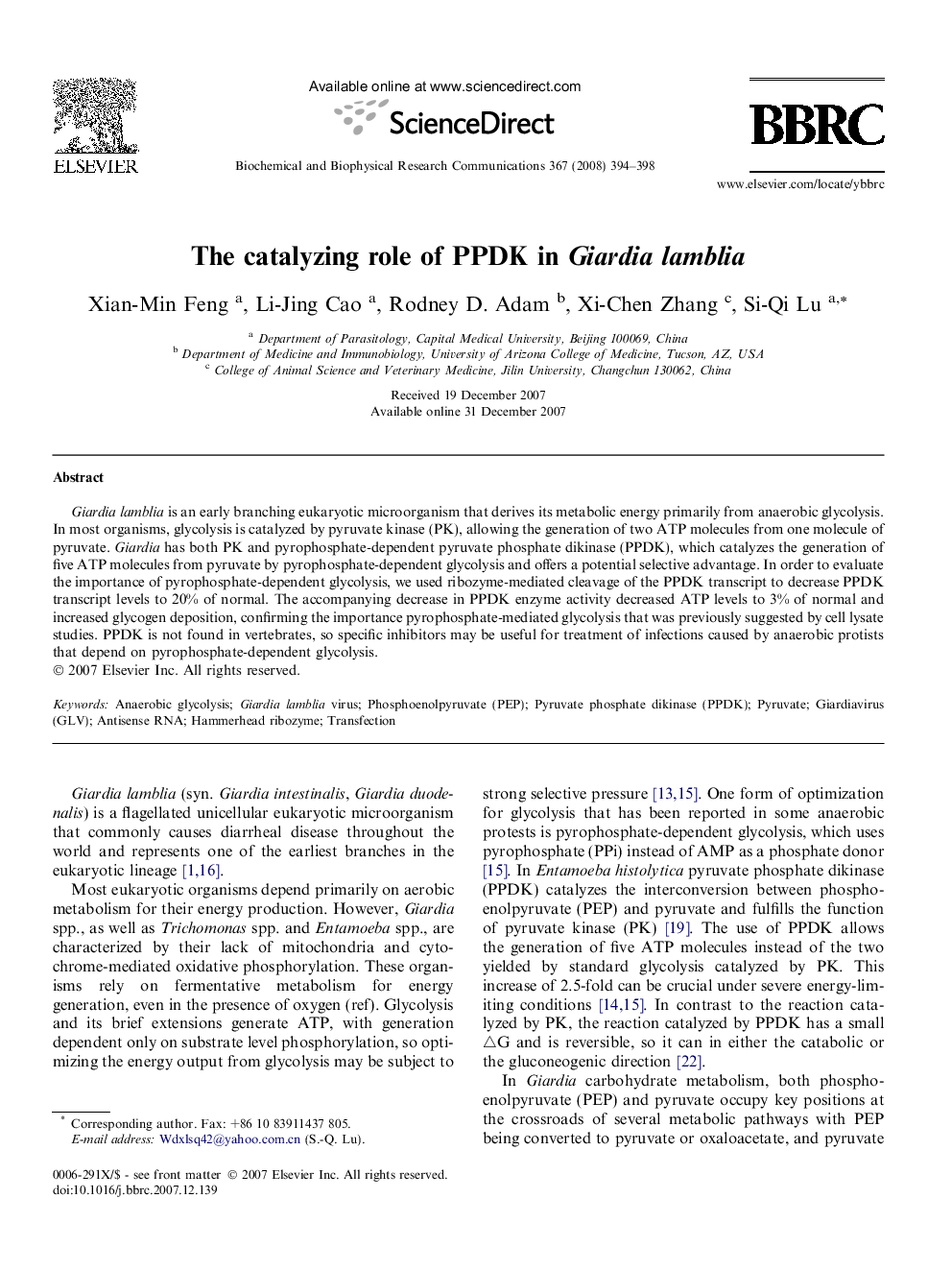| Article ID | Journal | Published Year | Pages | File Type |
|---|---|---|---|---|
| 10766748 | Biochemical and Biophysical Research Communications | 2008 | 5 Pages |
Abstract
Giardia lamblia is an early branching eukaryotic microorganism that derives its metabolic energy primarily from anaerobic glycolysis. In most organisms, glycolysis is catalyzed by pyruvate kinase (PK), allowing the generation of two ATP molecules from one molecule of pyruvate. Giardia has both PK and pyrophosphate-dependent pyruvate phosphate dikinase (PPDK), which catalyzes the generation of five ATP molecules from pyruvate by pyrophosphate-dependent glycolysis and offers a potential selective advantage. In order to evaluate the importance of pyrophosphate-dependent glycolysis, we used ribozyme-mediated cleavage of the PPDK transcript to decrease PPDK transcript levels to 20% of normal. The accompanying decrease in PPDK enzyme activity decreased ATP levels to 3% of normal and increased glycogen deposition, confirming the importance pyrophosphate-mediated glycolysis that was previously suggested by cell lysate studies. PPDK is not found in vertebrates, so specific inhibitors may be useful for treatment of infections caused by anaerobic protists that depend on pyrophosphate-dependent glycolysis.
Keywords
Related Topics
Life Sciences
Biochemistry, Genetics and Molecular Biology
Biochemistry
Authors
Xian-Min Feng, Li-Jing Cao, Rodney D. Adam, Xi-Chen Zhang, Si-Qi Lu,
